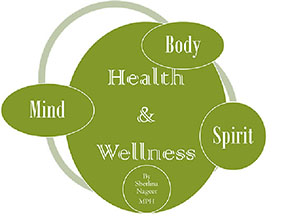It has long been observed that women live longer than men, worldwide. On average, the life expectancy for women is six years greater than for men. It’s a conundrum – after all, men tend to have more privilege, opportunities, and power than women and girls in many societies. Why then, are health outcomes for males so often worse than for females? The answer lies not in biology but from examining the social determinants of health.
 Social determinants of health—as defined by the World Health Organization—refer to the conditions in which people are born, grow, work, live, and age, and the wider set of forces and systems that shape daily life. Gender plays a crucial role in all our life experiences; it is one of the main social determinants of health and wellness. However, it’s not the sexual and reproductive organs themselves that have such power, but the meaning and conditions that people and society attach to those organs; in other words—gender roles and notions of masculinity and femininity.
Social determinants of health—as defined by the World Health Organization—refer to the conditions in which people are born, grow, work, live, and age, and the wider set of forces and systems that shape daily life. Gender plays a crucial role in all our life experiences; it is one of the main social determinants of health and wellness. However, it’s not the sexual and reproductive organs themselves that have such power, but the meaning and conditions that people and society attach to those organs; in other words—gender roles and notions of masculinity and femininity.
In many societies, women are conditioned to think of themselves as ‘the weaker/dependent sex,’ and men the dominant ones. Entire cultural and religious traditions have been created to reinforce this notion, along with others about power, control, and the ‘ordering’ of society. These ‘norms’—artificial though they are—have taken on a great deal of significance, impacting multiple facets of daily life. Men’s health, in particular, suffers as a result of societal conditioning and harmful notions of masculinity.
Worldwide, studies have shown that women are more likely than men to use health services. While this disparity may reflect women’s increased use of services during their reproductive years, the fact is that men’s health gets far less attention compared to women. For instance—women have become accustomed over the years to messages telling them to check their breasts for cancer. There are annual walks, awareness programmes, screening campaigns etc. This is necessary since breast cancer is the most common cancer affecting women worldwide (Note: men can get breast cancer too, but that is much rarer). There are cancers—such as testicular and prostate cancer—that affect men specifically.
